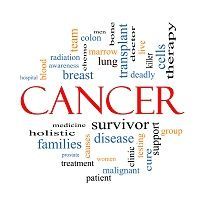- Revenue Cycle Management
- COVID-19
- Reimbursement
- Diabetes Awareness Month
- Risk Management
- Patient Retention
- Staffing
- Medical Economics® 100th Anniversary
- Coding and documentation
- Business of Endocrinology
- Telehealth
- Physicians Financial News
- Cybersecurity
- Cardiovascular Clinical Consult
- Locum Tenens, brought to you by LocumLife®
- Weight Management
- Business of Women's Health
- Practice Efficiency
- Finance and Wealth
- EHRs
- Remote Patient Monitoring
- Sponsored Webinars
- Medical Technology
- Billing and collections
- Acute Pain Management
- Exclusive Content
- Value-based Care
- Business of Pediatrics
- Concierge Medicine 2.0 by Castle Connolly Private Health Partners
- Practice Growth
- Concierge Medicine
- Business of Cardiology
- Implementing the Topcon Ocular Telehealth Platform
- Malpractice
- Influenza
- Sexual Health
- Chronic Conditions
- Technology
- Legal and Policy
- Money
- Opinion
- Vaccines
- Practice Management
- Patient Relations
- Careers
10 Ways to Manage the C-Word
The facts about cancer can be tough to hear, but information is the key to empowering patients to defeat the disease.

You have cancer. These are three words that no patient wants to hear and no doctor likes to say. It evokes terror, fear and confusion and frequently reduces the patient to a child in the doctor-patient relationship. What's more, with the Sick Care system sometimes being as hostile and confusing as it is, patients need as many instruments as possible to navigate the turbulent waters.
Here are facts about cancer, from the National Cancer Institute:
• In 2015, an estimated 1,658,370 new cases of cancer will be diagnosed in the United States and 589,430 people will die from the disease.
• The most common cancers in 2015 are projected to be breast cancer, lung and bronchus cancer, prostate cancer, colon and rectum cancer, bladder cancer, melanoma of the skin, non-Hodgkin lymphoma, thyroid cancer, kidney and renal pelvis cancer, endometrial cancer, leukemia, and pancreatic cancer.
• The number of new cases of cancer (cancer incidence) is 454.8 per 100,000 men and women per year (based on 2008-2012 cases).
• The number of cancer deaths (cancer mortality) is 171.2 per 100,000 men and women per year (based on 2008-2012 deaths).
• Cancer mortality is higher among men than women (207.9 per 100,000 men and 145.4 per 100,000 women). It is highest in African American men (261.5 per 100,000) and lowest in Asian/Pacific Islander women (91.2 per 100,000). (Based on 2008-2012 deaths.)
• The number of people living beyond a cancer diagnosis reached nearly 14.5 million in 2014 and is expected to rise to almost 19 million by 2024.
• Approximately 39.6% of men and women will be diagnosed with cancer at some point during their lifetimes (based on 2010-2012 data).
• In 2014, an estimated 15,780 children and adolescents ages 0 to 19 were diagnosed with cancer and 1,960 died of the disease.
• National expenditures for cancer care in the United States totaled nearly $125 billion in 2010 and could reach $156 billion in 2020.
The good news is that cancer deaths are dropping.
What should you do?
1. Make decisions based on best information, not desperation. You have time.
2. Get a second opinion. Your doctor has rendered an opinion, not the absolute truth. In addition, you might want someone who has excellent technical capabilities but lacks bedside manner. Others want high touch if they can find it.
3. Arm yourself with information. Engage in shared decision making, recognizing your biases for or against a certain treatment modality.
4. Build your support network both face-to-face and online.
5. Play offense, not defense. Ask questions and probe. Build your team.
6. Take personal responsibility for coordinating your care and don't expect doctors or systems to do it for you.
7. Get to know the players and the multiple people and the roles of those who will be caring for you. It should include a Cancer Care Navigator who can help you through the process, since it is most likely your doctor won't. Here's a resource that might help with education and a radio network for cancer patients.
8. Hope for the best but prepare for the worst and get your personal, legal, and financial affairs in order.
9. Explore information sites or find someone who is knowledgeable who can explore experimental treatments or clinical trials.
10. Become more insurance literate until you know your financial exposure like the back of your hand. It won't be easy. Cancer care and the cost of cancer drugs are extremely complicated and pricing often makes no sense.
With courage, information, and support, you can get through this, but you will need to take control. Once you have a clean bill of health, you should be a patient entrepreneur and pass forward what you have learned.
